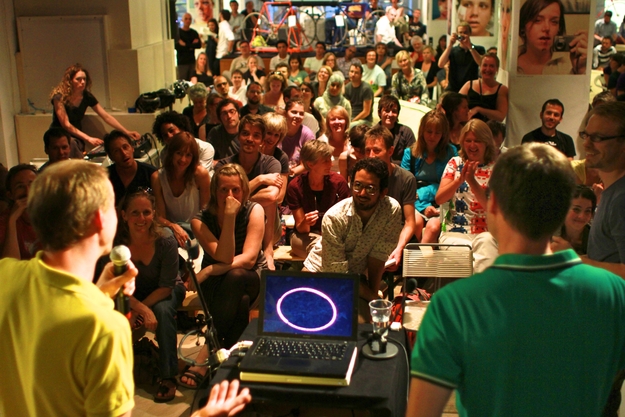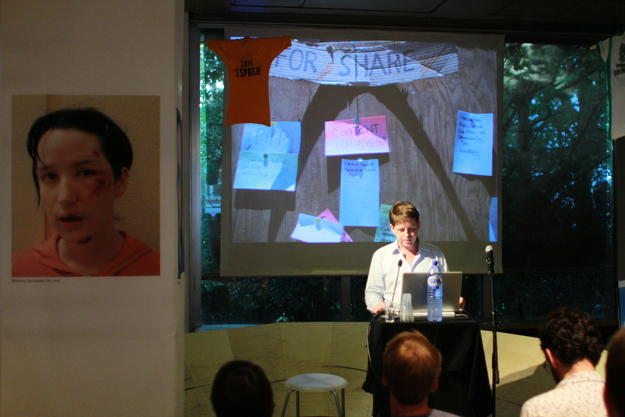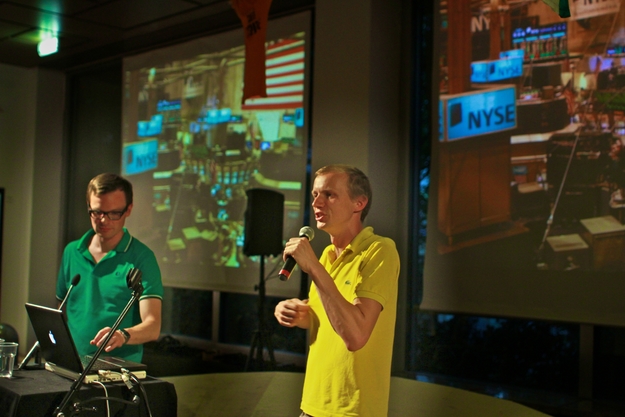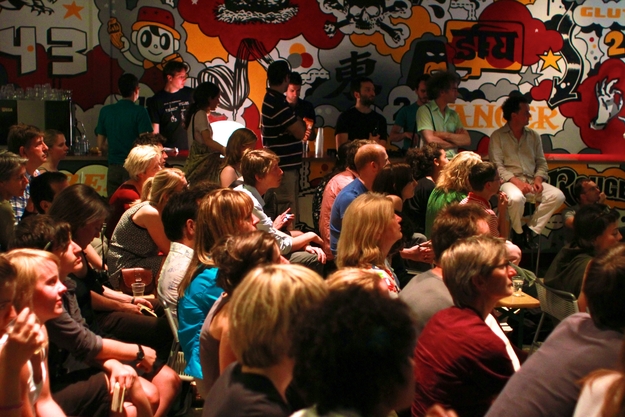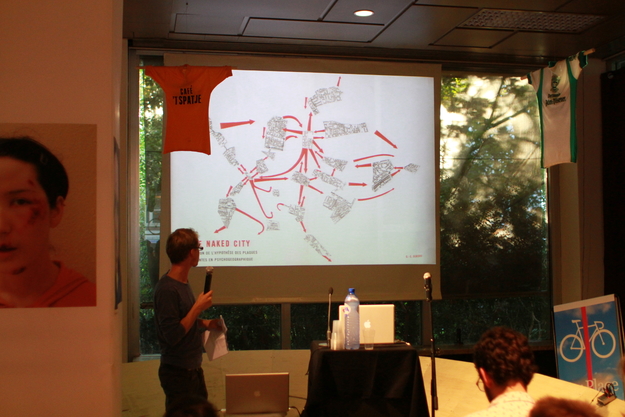Richard Rogers
Richard Rogers is head of the Media and Culture department at University of Amsterdam, and founder of Govcom.org. He describes himself as a 'web epistemologist'. He tries to develop methods other than those of traditional sociology or epistemology. Methods that actually structurally fit the way the internet is organized and organizes itself, to tell about society via what happens on the internet instead of vice versa. One of the basic questions is thus which method is most adequate to get a grip on what is still the relatively new phenomenon called 'the web'. For this purpose he and his students created the Issue Crawler. Since the internet is organized mainly by links (Google, for example, indexes sites by the amount of in- and outlinks), the IC 'crawls' or 'harvests' a given set of URL's which the user enters, for example a Google search on “iran + “nuclear bomb””, and subsequently creates a map (either a geomap or a linkmap) showing interconnections among the URL's.
It was interesting to see that it sometimes actually functions as a new form of 'ideology critique', in the sense of being able to argument via a higher level perspective that an individuals' intentions or self-representations are inconsistent, hypocritical etc. One very good example of this is the “Issues Celebrities” project. They started with a little cynicism and suspicion towards the newly emerging industry of celebrities involved in social issues, and tried to show both the most popular issues, as well as track their commitment over time. The case of Linda McCartney for instance. All in all this field of research is still in its early childhood stage. Although these network technologies and the organization of the web itself are transformed at such a rapid pace, obviously much can be expected in the future. It will be a full-time job keeping up with the Apples and the Microsofts, and all the nerds of this world.
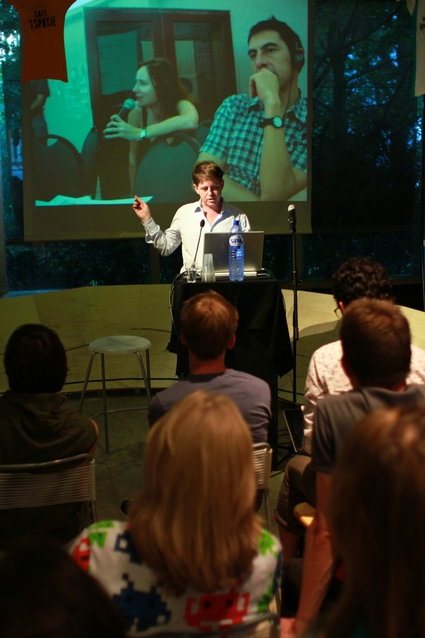
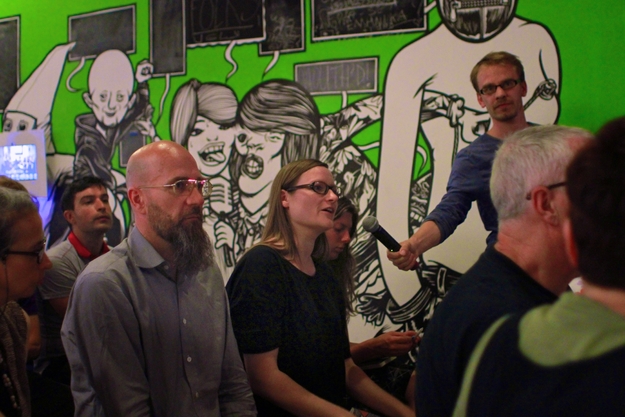
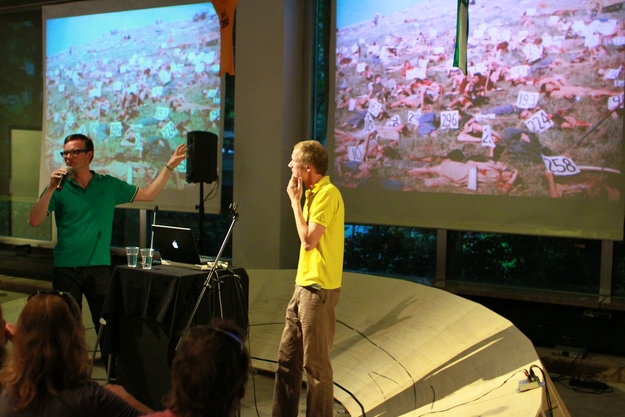
Catalogtree
Catalogtree is a design collective based in Rotterdam. They work mainly with large and complex data sets. Maps thus seem to be the most obvious medium. They design tools for self-organization, showing or creating a positive feedback loop between a social act and its collective representation. They visualize data sets so as to show the emerging patterns that always seem to exist within them. 19th century sociologist Durkheim distinguishes two social processes. The first is the stable social institutions in which general rules have been fixed, such as marriage. The second is the temporary and spontaneous collective, a social situation that becomes meaningfully organized and acts autonomously. The elements/individuals are not aware, or intentionally act towards their telos, such as a football crowd. An example Catalogtree presented consisted of an arc-shaped waiting line in front of a church in Dresden. Arc-shaped because everyone person wanted to see the end of the line. Only more abstract meta-perspectives such as maps can reveal such logics.
A lot of their projects also use geocoding. Using geo-tagged data available in government databases, specific processes are tracked and trends and patterns disclosed. In a project for the New York Times, Catalogtree used the CIA corruption index to map parking violations made by diplomats in the city of New York. They visualized the city with these violations as its only parameter. This resulted in some interesting findings, such as a drop in parking violations around September 11th 2001, when a lot of cops were on the street. Also, when diplomat immunity was abandoned by a new law, there was a sudden disappearance of violations. Catalogtree is currently working together with Tegenlicht on a documentary called “Inside the Black Box”, partly inspired by systems and web theorist Matthew Goldstein. Using financial data-visualizations, they disclose the workings of the global banking system, money flows, and the effects of high frequency trading by super-computers, who nowadays make up the larger part of the trading on the stock markets.
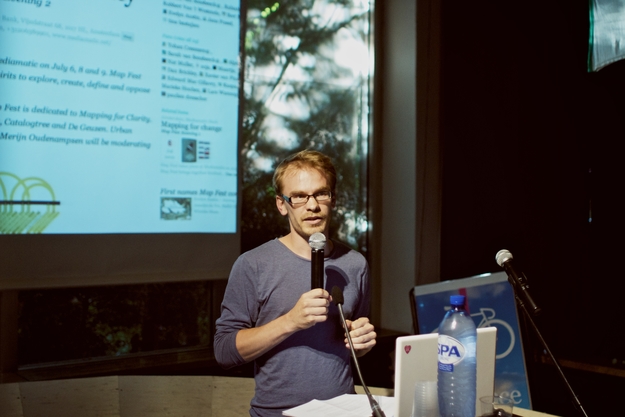
De Geuzen
De Geuzen presented a number of their projects which involve some kind of mapping. In the project they did in Fort Abcoude, they integrated mapping into a game which focuses on the origin of, and dialectic between, the concept of inhabitant and outsider, and between otherness and identity. According to Renee Turner, maps always function according to a logic of a simple divide: who's in and who's out. They therefore invite or instruct the participants to disrupt the map, to 'unmap'. To disrupt the invisible but palpable authorship that co-constitutes the aforementioned 'simple divide'. They play with the classical function of the map, namely to present a birds eye overview of a given scene. They urge cartographers to pay tribute to the original purpose of maps. Decipher the world and be curious about the complex details of a situation. Hail the power of the fragment, and of relations, because this crosses and displaced the simple divide of the classical map. De Geuzen see the cartographer as a follower, instead of a master.
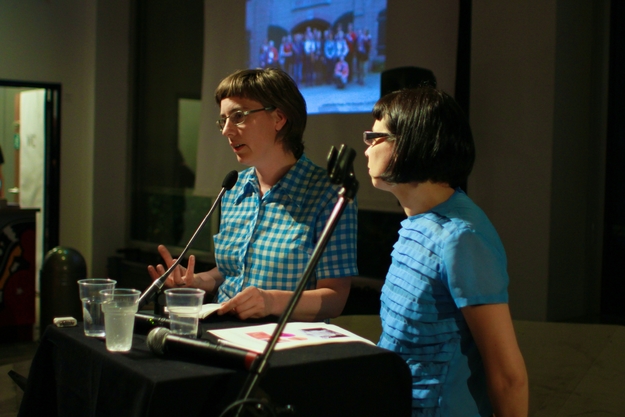
More information
Map Fest 2010 took place on July 6, 8 and 9 at Mediamatic Bank.
Read about Map Fest evening 1 (Mapping for Change) here.
Read about Map Fest evening 3 / Ignite Amsterdam #1 here.
